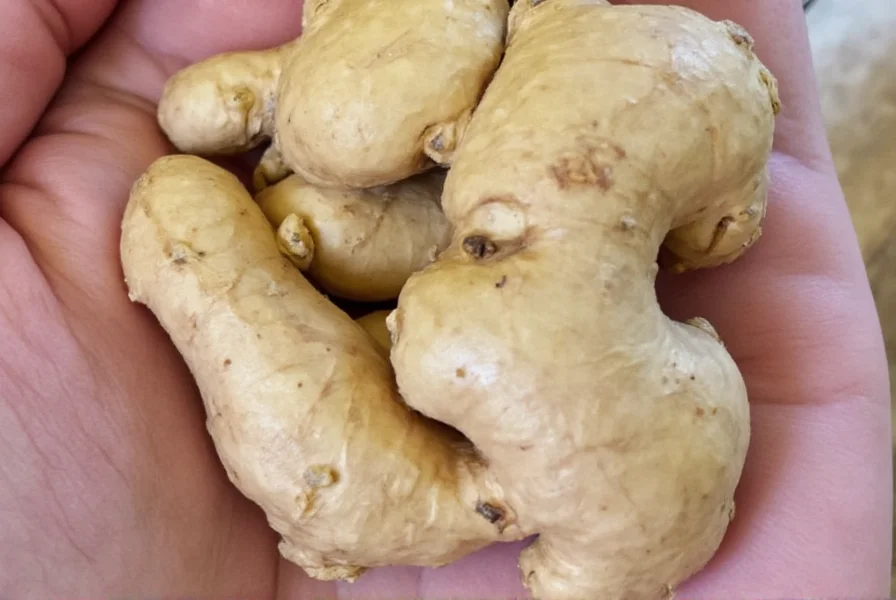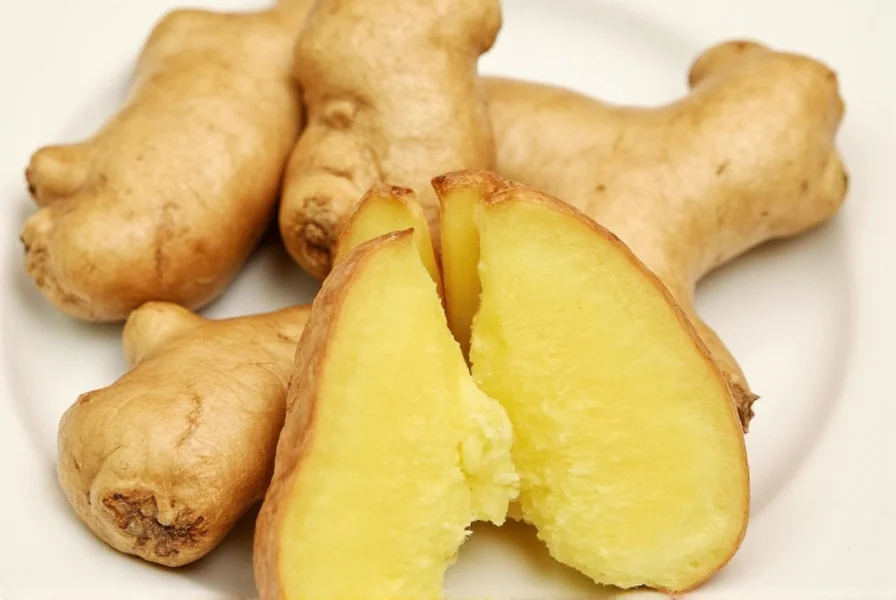Current scientific evidence suggests ginger may have modest blood pressure-lowering effects, but it should not replace prescribed hypertension medications. Multiple studies indicate ginger's potential to support cardiovascular health through anti-inflammatory properties and improved circulation, though more rigorous human trials are needed to establish definitive therapeutic recommendations.
High blood pressure affects nearly half of adults worldwide, driving interest in complementary approaches to conventional treatment. Ginger (Zingiber officinale), a spice with a long history in traditional medicine, has emerged as a potential natural support for cardiovascular health. This article examines what current research reveals about ginger's relationship with blood pressure regulation, separating scientific evidence from anecdotal claims.
The Science Behind Ginger's Potential Cardiovascular Benefits
Ginger contains bioactive compounds like gingerols and shogaols that demonstrate anti-inflammatory and antioxidant properties in laboratory studies. These compounds may influence blood pressure through several physiological pathways:
- Vasodilation effects: Some research suggests ginger compounds may promote relaxation of blood vessels
- ACE inhibition: Preliminary studies indicate ginger might modestly inhibit angiotensin-converting enzyme
- Reduced oxidative stress: Antioxidant properties may protect blood vessel function
- Improved circulation: Ginger's thermogenic properties may enhance blood flow
Reviewing the Scientific Evidence on Ginger and Blood Pressure
While traditional medicine systems have used ginger for circulation issues for centuries, modern scientific validation requires rigorous clinical evidence. Let's examine what research tells us:
| Study Type | Key Findings | Limitations |
|---|---|---|
| Human Clinical Trials (2015-2023) | Multiple studies show modest reductions (3-8 mmHg) in systolic BP with daily ginger supplementation (1-3g) | Small sample sizes; short duration (4-12 weeks); varying ginger preparations |
| Animal Research | More significant BP reductions observed in hypertensive rodent models | Results don't always translate directly to humans |
| Meta-analyses | 2022 review concluded ginger shows "promising but preliminary" evidence for BP support | Called for larger, longer human trials |
How Ginger Compares to Conventional Blood Pressure Management
Understanding where ginger might fit within comprehensive blood pressure management requires perspective. Conventional medications like ACE inhibitors typically reduce systolic blood pressure by 10-15 mmHg, while lifestyle modifications (diet, exercise) contribute additional 5-10 mmHg reductions.
Research suggests ginger's potential contribution appears more modest—likely in the range of 3-8 mmHg reduction when used consistently. This positions ginger as a possible complementary approach rather than a standalone solution for hypertension management.
Practical Considerations for Using Ginger
For those considering ginger as part of their cardiovascular health strategy, several practical factors matter:
Dosage and Forms
Studies showing potential benefits typically used:
- Fresh ginger: 1-2 inches daily in cooking or tea
- Ginger powder: 1-2 grams daily
- Standardized extracts: 250-500 mg twice daily (containing 5% gingerols)

Timing and Consistency
Most research indicates benefits require consistent daily use over several weeks. Unlike medications that work immediately, ginger's potential effects build gradually through sustained use.
Safety and Important Considerations
Ginger is generally recognized as safe by the FDA, but important considerations exist:
- Medication interactions: Ginger may enhance blood-thinning medications (warfarin, aspirin)
- Blood pressure medication: Could potentially amplify effects of antihypertensive drugs
- Pregnancy: High doses not recommended during pregnancy
- Surgery: Discontinue at least 2 weeks before surgical procedures
Individuals with gallstones should consult their healthcare provider before using therapeutic doses of ginger, as it may increase bile production.
Limitations of Current Research
While promising, the scientific understanding of ginger's effects on blood pressure has significant limitations:
- Most human studies have small sample sizes (fewer than 100 participants)
- Research durations are typically short (4-12 weeks)
- Variability in ginger preparations makes comparisons difficult
- Lack of long-term safety data for therapeutic doses
- Insufficient research on optimal dosing protocols

Integrating Ginger into a Comprehensive Blood Pressure Management Plan
If considering ginger for blood pressure support, approach it as one component of a multifaceted strategy:
- Continue prescribed medications unless directed otherwise by your physician
- Monitor blood pressure regularly to track any changes
- Discuss ginger use with your healthcare provider, especially if taking medications
- Combine with evidence-based approaches: DASH diet, regular exercise, stress management
- Be patient—any potential effects develop gradually over weeks
Remember that no single food or supplement can replace comprehensive lifestyle management for hypertension. The most effective blood pressure control comes from multiple evidence-based approaches working together.
Conclusion: A Promising Complementary Approach
Current evidence suggests ginger may offer modest support for blood pressure management as part of a comprehensive approach. While not a replacement for prescribed medications, its potential anti-inflammatory and circulation-enhancing properties make it a reasonable complementary option for many individuals. More rigorous, long-term human studies are needed to establish definitive recommendations regarding dosage, preparation, and specific populations that might benefit most.
Anyone considering adding ginger to their blood pressure management regimen should first consult with their healthcare provider, particularly if taking medications or managing other health conditions. The most effective approach to hypertension remains a combination of medical guidance, lifestyle modifications, and evidence-based complementary strategies.
Does ginger really lower blood pressure according to scientific studies?
Multiple clinical studies indicate ginger may produce modest reductions in blood pressure (typically 3-8 mmHg in systolic readings) when consumed consistently at therapeutic doses (1-3 grams daily) over several weeks. However, these effects are generally more modest than prescription medications, and research quality varies. Ginger should be viewed as a potential complementary approach rather than a primary treatment for hypertension.
How much ginger should I take daily for blood pressure benefits?
Research suggesting potential blood pressure benefits typically used 1-3 grams of ginger daily, which equates to approximately 1-2 inches of fresh ginger root, 1-2 grams of powdered ginger, or 250-500 mg of standardized ginger extract taken twice daily. It's important to consult with your healthcare provider before starting any new supplement regimen, especially if you have hypertension or take medications.
Can I replace my blood pressure medication with ginger?
No, you should never replace prescribed blood pressure medication with ginger or any other supplement without consulting your healthcare provider. While ginger shows promise as a complementary approach, its effects are generally more modest than prescription medications. Abruptly stopping prescribed hypertension treatment can be dangerous. Always discuss any changes to your treatment plan with your physician.
How long does it take for ginger to lower blood pressure?
Research suggests it may take 4-12 weeks of consistent daily use to observe potential blood pressure effects from ginger. Unlike medications that work immediately, ginger's potential benefits develop gradually through sustained use. Regular blood pressure monitoring is recommended if using ginger as part of your cardiovascular health strategy.
Are there any risks of using ginger with blood pressure medication?
Yes, ginger may potentially enhance the effects of blood pressure medications, which could lead to blood pressure dropping too low (hypotension). It may also interact with blood-thinning medications. If you're taking prescription medications for hypertension or other conditions, consult your healthcare provider before adding ginger supplements to your regimen. They can help determine if it's appropriate and monitor for potential interactions.











 浙公网安备
33010002000092号
浙公网安备
33010002000092号 浙B2-20120091-4
浙B2-20120091-4